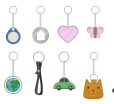In our fast-paced world, maintaining a robust immune system and minimizing inflammation has become more critical than ever. While medication can undoubtedly be beneficial in certain situations, it certainly helps to know that there are numerous natural ways to boost our immunity and reduce inflammation without relying solely on pharmaceuticals. If you incorporate these 16 tips into your daily routines, you will be able to fortify your body’s defense mechanisms and promote overall well-being.
Embrace A Wholesome Diet:

By nourishing your body with a well-balanced diet, you can form the foundation for a strong immune system. You should prioritize fresh fruits, vegetables, whole grains, lean proteins, and healthy fats. You can try to incorporate immune-boosting foods like citrus fruits, berries, garlic, ginger, turmeric, and green leafy vegetables.
Stay Hydrated:
You must ensure adequate hydration so you can maintain optimal bodily functions. Water helps flush out toxins and also supports immune responses. Hence, you must aim for at least eight glasses of water per day, and you should also reduce your intake of sugary beverages. Here are a few tips to help you stay hydrated.
Drink Sufficient Water:
drinking water throughout the day in adequate amounts is the most basic and essential tip to stay hydrated. Water is very essential when it comes to maintaining proper bodily functions, including the regulation of inflammation. You should aim to drink at least eight glasses of water daily, or more if you are physically active or in hot weather. You should carry a reusable water bottle with you so you can be reminded to stay hydrated always.
Consume Hydrating Foods:

Besides drinking water, you can also boost your hydration levels by eating foods with high water content. You can include hydrating fruits and vegetables in your diet, such as watermelon, cucumber, strawberries, oranges, celery, and lettuce. These foods not only provide essential nutrients but also contribute to your overall hydration and help you to combat inflammation in a natural way.
Prioritize Sleep:
When it comes to your immune function and regulating inflammation, the role of good quality sleep is paramount. You must have 7-9 hours of uninterrupted sleep each night. Try to establish a relaxing bedtime routine and also work towards creating a peaceful sleep environment so you can achieve restorative sleep
Manage Stress:
Chronic stress can weaken the immune system and help inflammation to grow. Here are a few tips for managing stress to help fight inflammation naturally:
Practice Stress-Reducing Techniques:
You can effectively manage stress levels and promote a healthier inflammatory response if you carry out stress-reducing techniques. Some effective techniques include meditation, deep breathing exercises, progressive muscle relaxation, and guided imagery. These practices can activate the relaxation response in the body, which counteracts the effects of stress and reduces inflammation.
Engage In Stress-Relieving Activities:

If you Incorporate stress-relieving activities into your routine, it will have a positive impact on both your mental well-being and inflammatory processes. You should try to find activities that you enjoy, and that help you relax, such as yoga, tie chi, journalism, listening to calming music, spending time in nature, or engaging in hobbies. Doing these activities regularly can help lower stress levels, promote a sense of calm, and contribute to a healthier inflammatory balance.
Vagus Nerve Stimulation:
Stimulating the vagus nerve can be valuable when you want to enhance immunity and combat inflammation naturally. The vagus nerve is a major component of the parasympathetic nervous system. It helps regulate various bodily functions, including immune response and inflammation. You can promote a state of relaxation and balance in the body by activating the vagus nerve. This will lead to improved immune function and reduced inflammation.
Deep breathing exercises are a common way to stimulate the vagus nerve. Deep, diaphragmatic breathing activates the relaxation response and stimulates the vagus nerve. This promotes a sense of calm and reduces stress. This, in turn, can help modulate the immune system and decrease inflammation.
Techniques such as meditation, yoga, and mindfulness practices are other popular vagus nerve stimulation methods. These activities actively promote relaxation and activate the parasympathetic nervous system, which in turn supports the immune function and dampens inflammatory responses. Alternatively, you can use Transcutaneous vagus nerve stimulation (tVNS), which is a non-invasive and safe technique to stimulate your vagus nerve. You can do tvns stimulation at home, so this might be something you can look into.
Regular Exercise:
Physical activity helps regulate inflammation and boost immune function. You can try incorporating a mix of aerobic exercises, strength training, and flexibility exercises into your routine. The goal should be at least 150 minutes of moderate-intensity exercise per week.
Maintain A Healthy Weight:

Excess body weight can also cause inflammation and weaken the immune system. You should maintain a healthy weight by incorporating a combination of regular exercise and a balanced diet.
Get Sufficient Sunlight:
Vitamin D, known as the “sunshine vitamin,” plays a vital role in immune function. You should spend time outdoors and ensure your body receives enough sunlight to promote adequate vitamin D synthesis. You can consult your healthcare provider to know more about recommended sun exposure and supplementation.
Limit Alcohol And Tobacco Consumption:
If you consume excessive alcohol and tobacco, it can impair your immune function and increase inflammation. Therefore, you must minimize or avoid these substances altogether to promote a healthy immune system.
Practice Good Hygiene:
If you want to reduce the risk of infections, it is imperative that you practice proper hygiene, such as regular handwashing. You can use soap and water, or an alcohol-based hand sanitizer, especially before meals and after you have come in contact with public surfaces.
Incorporate Probiotics:
Gut health is closely linked to immune function. You can include probiotic-rich foods like yogurt, kefir, sauerkraut, or kombucha in your diet to support a healthy gut microbiome.
Stay Socially Connected:
Maintaining healthy relationships and a robust social network has been linked to improved immunity. You should engage in meaningful social interactions, spend time with loved ones, and not hesitate to seek support when needed.
Stay Optimistic:
A positive mindset can significantly impact immune function and overall well-being. You can cultivate optimism, practice gratitude, and take part in activities that bring joy and fulfillment to your life.
Stay Hygienic During Illness:
If you are sick, you must practice good hygiene to prevent the spread of infection. You should cover your mouth and nose when coughing or sneezing, dispose of tissues properly, and avoid close contact with others until you fully recover.
Engage In Immune-Boosting Herbs And Supplements:
Certain herbs and supplements, such as echinacea, elderberry, garlic, and vitamin C, have been associated with immune-boosting properties. Consult with a healthcare professional before incorporating any new supplements into your routine.
Regular Health Check-ups:
If you have any underlying health conditions that might be affecting your immune system, one way to easily detect them is by going for regular check ups with a healthcare professional. You need to stay proactive in managing your health and follow any medical advice diligently.
Final Thoughts
If you implement these tips into your daily life, you can significantly enhance your immune function and reduce inflammation naturally. You must remember that each individual’s needs may vary, and you must listen to your body and consult with healthcare professionals whenever you feel the need. If you want to empower yourself to lead a healthier, more vibrant life, you must have a holistic approach to your well-being.
Read Also:




























